CEN - THE EUROPEAN COMMITTEE FOR STANDARDIZATION
CENELEC - THE EUROPEAN COMMITTEE FOR ELECTROTECHINCAL STANDARDIZATION
Annual Report 2022
Welcome to CEN and CENELEC Annual Report 2022!
2022 was a crucial year for CEN and CENELEC. A rapidly changing geopolitical environment disrupted established assumptions and behaviours, but also catalysed unprecedented acceleration of changes. Our community rose to the task and showed a renewed commitment to European standardization.
The Annual Report presents the main highlights that marked the year for our two organizations in 2022. Its new, fully digital format allows for a more accessible, renewed experience, and reflects CEN and CENELEC’s forward-looking approach.
In the video, Stefano Calzolari - CEN President, Wolfgang Niedziella - CENELEC President, and Elena Santiago Cid - CEN and CENELEC Director General, welcome our visitors to this Report and introduce the main topics it covers.
Enjoy!
2022 in figures
CEN and CENELEC at a glance
| European Standards | Workshop Agreements | Technical Specifications | Technical Reports | Guides | European Standards identical to international standards (ISO and IEC) | ||
| In 2022 | |||||||
| Deliverables published in 2022 by CEN and CENELEC | 1326 | 48 | 153 | 100 | 5 | 791 | |
| 1632 | |||||||
| Total CEN and CENELEC portfolio at the end of 2022 | 24169 | 521 | 796 | 899 | 94 | 10993 | |
| 26505 | |||||||
European standards for the green transition...
Climate change and protecting the environment are this generation’s defining challenge. This has been proven especially true in 2022, when Europe went through some serious challenges, including high energy prices and critical raw materials supply chain disruptions.
CEN and CENELEC are committed to the power of standards to provide actionable solutions and support Europe’s green transition. In particular, standards have the potential to enable eco-friendly innovation and sustainable economic growth and thus support green policies.
In 2022, CEN and CENELEC intensified their standardization activities to support the greening of the European industry all across the board.
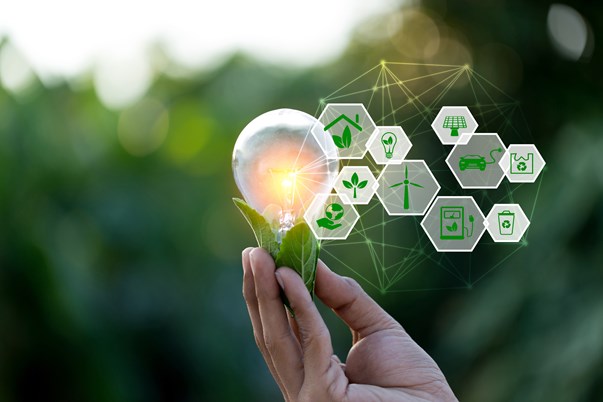
Some of the highlights include:
Climate change
CEN and CENELEC recognize the importance of mitigating, and adapting to, climate change. In early 2022, CEN and CENELEC signed the London Declaration. Through this document, they pledged to use standards to contribute to the climate agenda of the Paris Agreement and the United Nations Sustainable Development Goals (SDGs).
Ecodesign
The transition from the traditional linear economy to a circular economy represents a paradigm shift. It is a prerequisite to achieve the EU’s 2050 climate neutrality target. In 2022, more than 25 CEN and CENELEC Technical Committees continued expanding the portfolio of European standards (almost 200) supporting Ecodesign and energy labelling regulations. In particular, the new standards provide methods for measuring the energy performance of various energy-related products against compulsory values and thresholds.
Batteries
The EU Strategic Action Plan on Batteries defines a strategy to create a competitive and sustainable battery manufacturing industry in Europe. In this framework, the European Commission has given mandate to CEN and CENELEC (M/579) to develop standards on performance and durability aspects of portable rechargeable and non-rechargeable batteries. In 2022, the relevant CEN and CENELEC Technical Committees started developing the requested standards to implement the Plan’s objectives.
Circular plastics
In 2022, the European Commission mandated CEN and CENELEC (M/584) to develop standards related to the collection, sorting and recycling of plastic waste, including Design-for-Recycling guidelines. This action was taken in the frame of the Circular Plastic Alliance, which CEN and CENELEC are signatories of. These standards will benefit the entire plastics value chain and society: they will contribute to establish a fully circular plastics economy, with recycled plastics increasingly used for products and packaging.
... and for the digital transition

CEN and CENELEC actively contribute to Europe’s digital transition. ICT standards are at the core of the digital transformation of all sectors of the economy, such as health, machinery, energy, services, or education.
In 2022, CEN and CENELEC developed standardization deliverables in support of a wide variety of EU legislative acts, such as the Annual Union Work Programme 2022, Europe’s Digital Decade objectives, and the Rolling Plan on ICT standardization.
Some of highlights include:
Quantum Technologies
In 2022, the CEN CENELEC Focus Group on Quantum Technologies finalized its Standardization Roadmap, which provides an overview of standardization needs. This roadmap is one of its kind, as it addresses the entire field of QT and is also relevant for international standardization efforts.
Artificial Intelligence
Artificial Intelligence (AI) is progressing exponentially, widely affecting our society and the way businesses operate. AI applies to a variety of sectors where standardization is of high relevance: smart manufacturing, robotics, autonomous transportation, virtual reality, healthcare, visual recognition, data analysis, AI assisted decision-making, home appliances, or cybersecurity.
In 2022, CEN and CENELEC's JTC 21 ‘Artificial Intelligence’ started the adoption of International Standards together with the development of European standards that complement international standardization and underpin European policies, in anticipation of the Artificial Intelligent Act.
Cybersecurity and data protection
While ICT technologies often mean new opportunities, they also create safety threats. Hence, it is important to ensure a constant high level of assurance and security. In this field, CEN and CENELEC's JTC 13 plays a very important role, developing standards for Cybersecurity and Data Protection which improve the security features of products, services and processes in all sectors and boost consumer’s trust in the digital environment. In 2022, JTC 13 worked to develop harmonized standards in support of the Radio Equipment Directive Delegated Regulation.
EU policy and standardization, an evolving relation
As the landscape of Europe continued to evolve in 2022, so did the European standardization System.
In February 2022, the European Commission published the new European Standardization Strategy. This document strengthens the strategic role of standards in the Single and the Global Market. In the first year of its implementation, it has set the basis for a renewed framework to better support Europe’s competitiveness and strategic autonomy, and ensure that European and international standards are in line with the EU's interests and values.
The key actions introduced by the Strategy include the establishment of a High Level Forum on Standardization, the nomination of a Chief Standardization Officer for the European Commission, in the person of Maive Rute, and a renewed focus on education and skills and the next generation of standards makers.
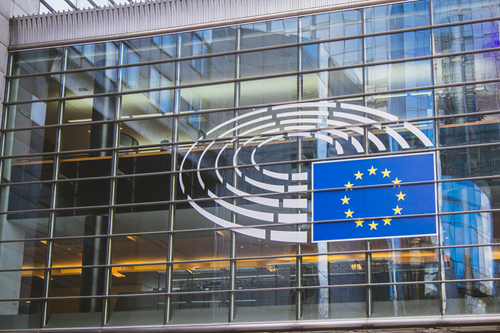
CEN and CENELEC welcome the European Strategy, which echoes the ambitions we have in our own Strategy 2030. In 2022, we focused on strengthening our cooperation with the European Institutions, contributing to the European Strategy, and orchestrating the CEN and CENELEC contribution to the set-up of the High Level Forum and input to the green, digital and resilient pillars of work.
Furthermore, we put emphasis on contributing to key legislative proposals relevant for CEN and CENELEC, such as the Data Governance Act, the Digital Market Act and the Machinery Regulation. In addition, we worked to align the efforts on standardization under the Corporate Sustainable Reporting Directive (CSRD) and the standardization work at European and international level, activities which will carry into 2023.
This spirit of cooperation also continued driving the activities of the CEN and CENELEC Policy Groups, supported by the European Policy Hub (EPH), working together to streamline our policy engagement activities as well as contributions to the Council Presidencies of France and Czechia.
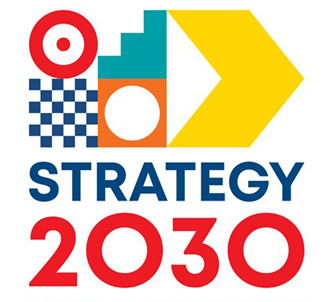
The implementation of the CEN and CENELEC Strategy 2030
The CEN and CENELEC Strategy 2030 helps us navigate current disruptive challenges and opportunities to position ourselves as catalysts of a sustainable and globally competitive European economy. It frames our vision and mission against the backdrop of the twin digital and green transitions.
A rolling Implementation Plan has been put in place to facilitate the achievement of these goals. This includes a Measurement Framework with KPIs to monitor progress, and a framework to establish a fit-for-purpose delivery architecture. A key part of this architecture is the introduction of a project-based approach led by a Project Management Office (PMO) within the CEN and CENELEC Management Centre, which started operating in late 2022.
2022 also saw the implementation of five strategic projects, some of which are set to continue into 2023:
- Timely Citation of Harmonized Standards: the aim is to deliver a smooth referencing system for Harmonized Standards, based on the work conducted by a joint ESO-EC task force.
- Enabling Digital Transformation Strategy Project Data and strategic fit: the aim is to meet stakeholders’ evolving needs by leveraging digital skills, business models and tools, with a focus on developing SMART standards and solutions for Online Collaborative Authoring.
- Assessing User Needs: this project generated a mapping of existing practices and systems used by Members to identify user needs.
- Inclusiveness and Diverse Representation Dashboard: this project conducted an analysis of how well stakeholders are represented in the CEN and CENELEC Technical Bodies to assess the inclusiveness and diversity of our standardization activities.
- Mechanism for the systematic identification and proactive action on strategic issues in ISO and IEC: this project aims to develop a coordination mechanism allowing our Members to flag and address European issues of strategic interest at ISO and IEC.
Standards power innovators and researchers
Improving the exchange between standardization and research and helping innovations access the market are among the most relevant long-term priorities for CEN and CENELEC. In 2022, the actions undertaken in the field followed three main objectives:
Developing CEN and CENELEC capacities to engage the R&I Community
- The fourth edition of the Standards+Innovation Awards took place in 2022 to celebrate and acknowledge the important contributions of research and innovation to standardization.
- A new CEN and CENELEC Guide 39 on the role of standards in support of Technology Transfer was published to explain the role of standards in promoting innovation in the marketplace.

Identification of new topics for Standardization
- 20 innovative topics ripe for standardization were identified and presented to the CEN and CENELEC Technical Boards for possible adoption into the Technical Work programs.
- The ‘Data quality requirements for inclusive, non-biased, and trustworthy artificial intelligence’ workshop took place as the 2022 edition of Putting Science into Standards (PSIS), in collaboration with the European Commission’s Joint Research Centre.
Integrating Standardization and Research Projects
- Horizon Europe remains an integral tool to link standards to research. Thus, CEN and CENELEC analysed the Horizon Europe work programme for 2023-2024 adopted in late 2022, to better support our network in submitting project proposals.
- CEN and CENELEC also collaborated with the European Commission in the development of a Code of Practice on standardization. The code provides a set of recommendations to beneficiaries of public-funded research and innovation programmes on how to use standardization to valorise project results.
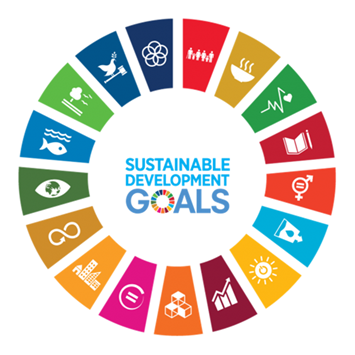
European Standards for the SDGs
The 2030 UN Agenda for Sustainable Development provides a shared blueprint for peace and prosperity for people and the planet. At its heart are the 17 Sustainable Development Goals (SDGs), which serve as an urgent call to action for a global partnership that addresses social imbalances, develops a sustainable economy, and fights against climate change. To be achieved, the SDGs require the cooperation of many public and private partners.
Monitoring the contribution of standards to the SDGs
CEN and CENELEC contribute to the SDGs by developing standards that support sustainable development, facilitate innovation and policy implementation, and promote social responsibility. Standards and SDGs can complement and reinforce each other in achieving a more sustainable future.
Still, it can be challenging for businesses to understand how they can be a part of this initiative. In this context, voluntary, consensus-based standards have a big role to play. Standards facilitate the translation of ambitions into concrete actions: they offer shared and clear rules of behaviour, fostering the dissemination of best practices and the circulation of innovations.
Based on this belief, in 2022 CEN and CENELEC developed a new dedicated website and digital mapping of Standards for the SDGs. The project gives a thorough overview of how standards help achieve the SDGs in the European context, building on the work at the international level already done by ISO and IEC. At the moment, the website accounts for 6000 deliverables.
This is a living list, which will be continually updated. The project raises awareness among the European standardization community on SDGs and on the value of European Standards in support of the EU strategy to build resilience, as we embark on the twin green and digital transition.
Focus on Gender Equality
Particular attention in 2022 was given to SDG 5 – ‘Gender equality and empower all women and girls’: the CEN and CENELEC Administrative Boards approved the 2nd CEN-CENELEC Gender Action Plan (2023-2025), to further embed gender-responsiveness in our system.
Furthermore, in September 2022, during the European Sustainable Energy Week, CEN and CENELEC became signatories of the Equality Platform for the Energy sector, established by the European Commission in 2021.
Building an open, inclusive system
Ensuring the widest participation of stakeholders in standardization is key to the high quality of our standards and the legitimization of our system.
For this reason, over the years we have established a series of cooperation formats with a variety of partners from the industry and civil society.

Societal stakeholders
CEN and CENELEC have a fruitful relationship with the four so-called ‘Annex III organizations’ (ANEC, ECOS, ETUC, SBS). Their participation to standardization is vital to ensure the inclusiveness of our system.
In particular, 2022 marked an important step towards the inclusiveness of our System: the finalization of a project that granted Annex III organizations an online access to all European normative references enhanced their ability to effectively contribute to the standardization process.
Industry Advisory Forum
The purpose of the Industry Advisory Forum (IAF) is to provide a platform for dialogue with industry to ensure that standards adequately respond to market needs.
2022 marked the start of a 2nd IAF mandate for a new 3-year term. In this first year, the IAF focused on developing recommendations to the CEN and CENELEC boards on the EU Standardization Strategy, and on strategic standardization topics such as Circular economy, Services, and CPR.
Stakeholders’ Engagement Workshops
CEN and CENELEC organise a series of Stakeholders’ Engagement Workshops to connect with all relevant parties on emerging strategic issues and identify suitable standardization solutions.
In 2022, we organized two of these workshops:
Other events and trainings
In 2022, we organised a series of other events on relevant standardization issues, which attracted a big number of participants. Among them:
- Cybersecurity Standardization Conference 2022 with over 900 attendees from the EU and from around the world
- Putting Science Into Standards workshop on Data quality requirements for inclusive, non-biased and trustworthy AI with over 180 people from 36 countries
- Standards + Innovation Awards 2022 with around 100 online
We also regularly organise dedicated, specialised trainings for technical body officers and standardization experts. The full list of 2022 trainings can be found here.

A wide-ranging impact in a changing international environment
CEN and CENELEC’s international activities are centred on two key principles: enhancing the role of standards to boost the competitiveness of European businesses on the global stage; and collaborating with like-minded international partners to provide common solutions to global challenges.
Based on these principles, 2022 saw some important new developments, on the background of a changing international context.
In response to Russia’s invasion of Ukraine, our community decisively undertook a series of actions in support of the Ukrainian Standardization Body, DSTU. To coordinate such initiatives, we set up a dedicated ‘Conflict Management Network’ (CMN).
Furthermore, DSTU, together with the standardization bodies of Georgia (GEOSTM) and Moldova (ISM), were welcomed as Affiliates. This decision, for entry into force on 1 January 2023, consolidates the links between the EU and the three Eastern Partnership countries.
Other highlights include:
- A new cooperation agreement was signed with SAC (China) in September 2022, during the ISO General Assembly in Abu Dhabi. Moreover, in October 2022, the launch of the 5th phase of the Seconded European Standardization Expert in China (SESEC V) Project was confirmed.
- Within the EU-US trade relations, we have been contributing to the EU-US Trade and Technology Council (TTC), participating in 10 WGs, with a particular focus on “Technology Standards”.
- Another Trade and Technology Council (TTC) was established by EU and India. It will focus on connectivity, green technologies, and resilient supply chains, and contains many references to standardization. To ensure a sustained cooperation, CEN and CENELEC signed a Memorandum of Understanding with the Bureau of Indian Standards (BIS).
- Strengthening economic ties with Africa and encouraging the adoption of European and international standards is a priority for the EU Standardization Strategy. In 2022, the CEN and CENELEC Task Force Africa focused on identifying areas of collaboration within the existing EU Africa Trade Competitiveness and Market Access program.
- Finally, with regards to the adoption of European standards internationally: at the end of 2022, 252 standards had been adopted by 45 national standardization organizations outside the CEN and CENELEC Membership.
e-Communication
Publication and Campaigns
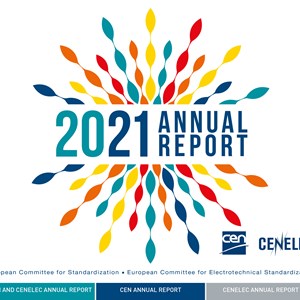 CEN and CENELEC Annual Reports 2021
A recap of the main highlights and activities undertaken by CEN and CENELEC in 2021.
CEN and CENELEC Annual Reports 2021
A recap of the main highlights and activities undertaken by CEN and CENELEC in 2021.
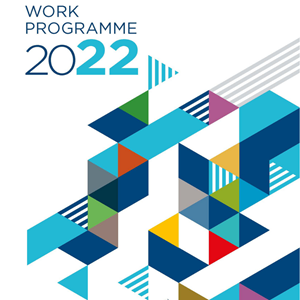 CEN and CENELEC Work Programme 2022
An overview of the most relevant standardization activities foreseen for implementation by CEN and CENELEC in 2022.
Global Outreach Report
An overview of technical alignment achieved with non-European partners through the adoption of identical European standards.
CEN and CENELEC Work Programme 2022
An overview of the most relevant standardization activities foreseen for implementation by CEN and CENELEC in 2022.
Global Outreach Report
An overview of technical alignment achieved with non-European partners through the adoption of identical European standards.
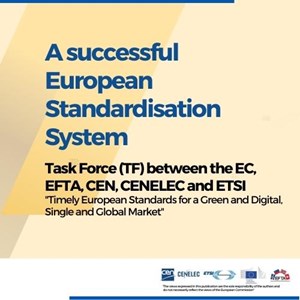 A successful European Standardization System
A brochure presenting the achievements of the Task Force between the EC, EFTA, ETSI, CEN and CENELEC.
A successful European Standardization System
A brochure presenting the achievements of the Task Force between the EC, EFTA, ETSI, CEN and CENELEC.
 ‘On the Spot’ newsletter
We published 9 issues of our newsletter, opened by an average of 1000 readers per month.
‘On the Spot’ newsletter
We published 9 issues of our newsletter, opened by an average of 1000 readers per month.
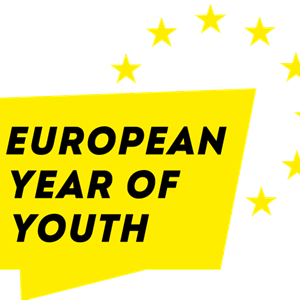 European Year of Youth
A year-long campaign to celebrate young standardization professionals and attract new faces to standardization.
European Year of Youth
A year-long campaign to celebrate young standardization professionals and attract new faces to standardization.
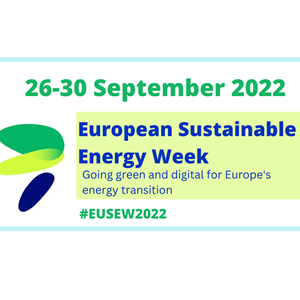 European Sustainable Energy Week
On social media, from 26 to 30 September we described standards’ contribution to Europe’s sustainable energy transition.
European Sustainable Energy Week
On social media, from 26 to 30 September we described standards’ contribution to Europe’s sustainable energy transition.
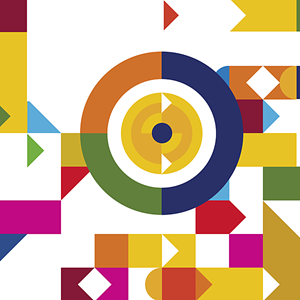 World Standards Day 2022
On 14 October 2022, we joined the international standardization community in celebrating #WorldStandardsDay.
World Standards Day 2022
On 14 October 2022, we joined the international standardization community in celebrating #WorldStandardsDay.
Standardization Activities
In 2022, CEN and CENELEC developed a total of 1632 new standardization deliverables, across 22 business sectors. The slideshow on the right gives a graphic overview of the variety of this standardization activity.
Every box represents one business sector, the numbers indicate the amount of new standards developed in 2022 in each one of them, and additional information on is available by clicking on the hyperlinks.
Standardization Activities in 2022
| Sectors |
icon Deliverables in the portfolio at the end of 2022 |
icon Deliverables published in 2022 | icon Technical Bodies at the end of 2022 |
|
Accumulators, Primary Cells And Primary Batteries |
90 | 4 | 4 |
| Chemicals | 1482 | 122 | 23 |
|
Construction |
3385 | 179 | 87 |
| Consumer | 969 | 49 | 24 |
|
Defence and security |
227 | 17 | 33 |
|
Digital society |
2567 | 140 | 53 |
|
Electric Motors And Transformers |
22 | 0 | 2 |
|
Electric Equipment And Apparatus |
319 | 7 | 8 |
|
Electronic, Electromechanical And Electrotechnical Supplies |
1033 | 37 | 18 |
|
Electrotechnology General |
700 | 34 | 27 |
|
Energy and utilities |
2304 | 170 | 81 |
|
Food and agriculture |
773 | 62 | 21 |
|
Healthcare |
1366 | 121 | 36 |
|
Household appliances and HVAC |
792 | 82 | 26 |
|
Insulated Wire And Cable |
413 | 9 | 5 |
|
Lighting Equipment And Electric Lamps |
441 | 22 | 1 |
|
Low Voltage Electrical Equipment And Installations |
504 | 20 | 23 |
|
Mechanical And Machinery |
2519 | 191 | 89 |
|
Mining and metals |
1027 | 62 | 17 |
|
Occupational Health And Safety |
514 | 20 | 10 |
|
Services |
408 | 25 | 38 |
|
Transport And Packaging |
4433 | 254 | 44 |



















